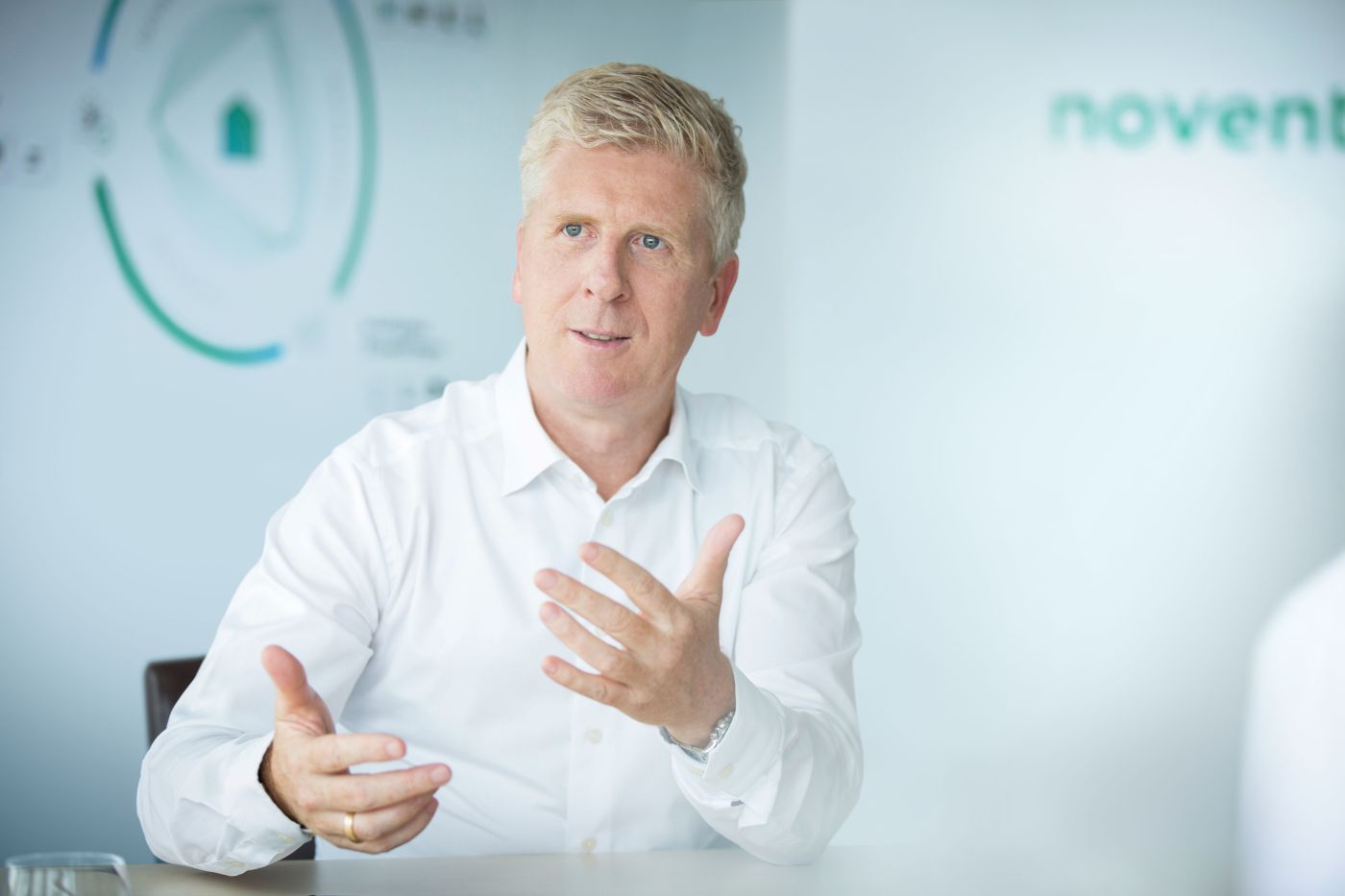Article

Climate protection tools for the home
Intelligent climate protection in apartment blocks: that is what the noventic group stands for. We are one of the leading company groups in the German housing industry. By using apps to interconnect existing sensor systems we create immediate consumption transparency in rented apartments, thereby providing all parties concerned with an economical way of making Germany’s building stock climate friendly.
Jan-Christoph Maiwaldt, CEO of the noventic group: “Germany can achieve the 2050 climate targets for its building stock, and can do so affordably for tenants and owners. The necessary solutions are ready and waiting. To keep us on track politicians must be resolute in sticking to the prescribed course of digitisation of the energy transition instead of continually coming up with unnecessary and costly new proposals.”
The energy consumption of buildings will have to be greatly reduced in order to achieve the climate targets, says Maiwaldt. To date Germany has focused chiefly on insulating the building envelope. Doing this is effective, but it costs a lot of money and disrupts the lives of tenants and building owners. However, low-investment, economical measures can also make a major contribution to climate protection without causing any unnecessary increases in people’s cost of living. Jan-Christoph Maiwaldt: “By establishing direct consumption transparency we have laid the foundation. For energy-efficient heating in the field of machine-to-machine communication. And to help residents be able to be directly aware of and reflect on their consumption behaviour.” According to a study by the German Energy Agency (Deutsche Energie-Agentur - DENA) and Professor Clemens Felsmann, this alone will make possible energy savings of up to 35 per cent.
According to a DENA study, about one third of CO2 emissions in Germany are attributable to buildings. “That represents a huge potential saving”, says Maiwaldt. Therefore he is calling on the federal government’s Climate Cabinet to finally find a way of swiftly implementing the smart meter roll-out plans adopted as long ago as 2016. “A low-investment way of rapidly furthering climate protection.”
Just recently the German Association for Housing, Urban and Spatial Development (Deutsche Verband für Wohnungswesen, Städtebau und Raumordnung- DV), together with the German National Tenants’ Association (Deutsche Mieterbund) and the German Housing Industry Association (Verband der Deutschen Wohnungswirtschaft) called for the federal government to put in place a “more efficient means of support”. “Currently the biggest subsidies are provided for what is most expensive”, notes DV President Michael Groschek. “That makes no kind of sense. The things that should be subsidised are the ones which actually prevent the most CO2 emissions.”